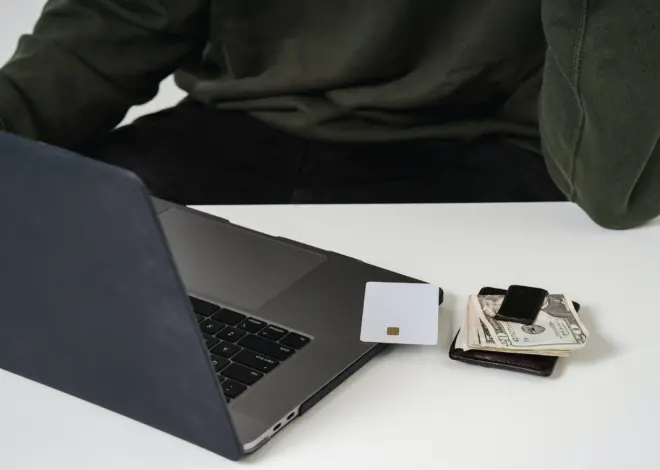
Credit Cards vs. Debit Cards: A Comparative Guide
Introduction to Credit and Debit Cards
In the modern world, financial transactions have evolved beyond the exchange of physical currency. Two of the most common tools for digital transactions are credit and debit cards. Both offer a convenient way to pay for goods and services, manage your finances, and make transactions online and in-person. However, they operate on different financial principles.
Credit cards, issued by financial institutions, allow you to borrow money up to a certain limit in order to make purchases or withdraw cash. At the end of each billing cycle, you can choose to pay off your balance in full or carry a balance to the next month, incurring interest charges. Credit cards can be a flexible payment tool, but they require careful management to avoid accruing high-interest debt.
On the other hand, debit cards are linked directly to your bank account. When you make a purchase with a debit card, money is immediately deducted from your account. Debit cards do not involve borrowing money or paying interest, but they require you to have sufficient funds in your account for each purchase.
While both credit and debit cards may look similar, they offer different features and benefits. Understanding these differences is crucial for making informed decisions about which one to use in various situations. The following sections will delve deeper into the pros and cons of each, their key differences, and how to choose the right card for your financial needs. Stay tuned!
Understanding Credit Cards: Pros and Cons
Pros of Credit Cards
Building Credit: Regular use and prompt payment of a credit card can help build your credit score, which is beneficial for getting loans, insurance, or even a job.
Rewards and Points: Many credit cards offer rewards programs, including cash back, points, or miles for travel. These rewards can add up over time and be redeemed for various benefits.
Security: Credit cards often have better protection against fraudulent charges than debit cards. In many cases, if your card is used fraudulently, you won’t be liable for those charges.
Emergency Funding: Credit cards can provide an important line of credit in case of financial emergencies where you need to make a large purchase immediately and pay it off over time.
Cons of Credit Cards
Interest and Fees: If you don’t pay off your balance in full each month, you’ll be charged interest. Rates can be quite high, leading to significant debt over time. There can also be fees for late payments, cash advances, and going over your credit limit.
Potential for Debt: The ability to spend money you don’t currently have can lead to significant debt if not managed carefully. This debt can accumulate quickly, especially with high-interest rates.
Impact on Credit Score: Just as responsible use can build your credit score, irresponsible use can harm it. Late or missed payments, high levels of debt, and too many open accounts can negatively impact your credit score.
In the next section, we’ll explore the pros and cons of debit cards to further understand their differences and similarities with credit cards
Key Differences Between Credit and Debit Cards
Source of Funds: The fundamental difference between credit and debit cards lies in the source of funds. When you use a credit card, you’re borrowing money from the card issuer up to a certain limit. In contrast, a debit card draws money directly from your bank account.
Interest and Fees: Credit cards typically come with interest charges if you carry a balance from month to month. They may also have annual fees, late payment fees, and foreign transaction fees. Debit cards, on the other hand, usually don’t charge interest and have fewer fees.
Credit Building: Credit cards can help you build credit history as your payment information is reported to credit bureaus. Debit cards, however, do not contribute to your credit history as they draw on existing funds.
Fraud Protection: Both credit and debit cards offer fraud protection, but credit cards often provide more comprehensive coverage. If your credit card is used fraudulently, you’re typically not responsible for those charges.
Rewards and Benefits: Credit cards often come with rewards programs, offering points, cash back, or travel rewards. Debit cards typically don’t offer such programs.
Spending Limit: Your spending limit on a credit card is determined by your credit limit, which is set by the card issuer. With a debit card, your spending limit is the amount of money in your bank account.
In the next section, we’ll discuss how to choose the right card for your financial needs based on these differences and your personal circumstances.

Choosing the Right Card for Your Financial Needs
Choosing between a credit card and a debit card depends on your financial habits, needs, and goals. Here are some factors to consider:
Budget Management: If you prefer to spend only the money you have and want to avoid the risk of debt, a debit card is a good choice. It allows you to keep track of your spending in real time and helps prevent overspending.
Building Credit: If your goal is to build or improve your credit score, a credit card is the way to go. Responsible usage and timely payments can help boost your credit score over time.
Rewards and Perks: If you’re interested in earning rewards like cash back, travel miles, or points for purchases, a credit card typically offers more robust rewards programs.
Large Purchases: For large purchases that you’d like to pay off over time, a credit card can provide the flexibility you need. It allows you to carry a balance from month to month (though interest will apply).
Security: While both cards offer fraud protection, credit cards often provide more comprehensive coverage against fraudulent charges. If security is a top concern for you, this might influence your decision.
Remember, it’s not an either-or decision. Many people use both credit and debit cards for different purposes. The key is to understand how each type of card works and to use it responsibly. In the next section, we’ll wrap up our discussion and provide some final thoughts on making informed financial decisions.
Conclusion: Making Informed Financial Decisions
In the world of personal finance, knowledge is power. Understanding the differences between credit cards and debit cards is a crucial step in making informed financial decisions. Both types of cards have their own advantages and disadvantages, and the best choice depends on your individual financial needs and habits.
Credit cards, with their ability to build credit, offer rewards, and provide purchase protections, can be powerful financial tools. However, they require disciplined spending and timely payments to avoid high interest rates and potential debt accumulation.
On the other hand, debit cards offer the simplicity of spending only what you have in your account, thus helping you avoid debt. However, they lack some of the benefits and protections offered by credit cards.
Ultimately, the decision between using a credit card or a debit card should be based on your financial goals, spending habits, and personal discipline. It’s not about which card is inherently better, but about which card is better for you.
Remember, the key to making informed financial decisions is understanding your options. By weighing the pros and cons of credit cards and debit cards, you can choose the right card for your financial needs and navigate your financial journey with confidence.
In conclusion, whether you choose a credit card, a debit card, or both, the most important thing is to use your cards responsibly. Stay informed, stay disciplined, and your financial health will thank you for it.
Remember, the right card isn’t the one with the most perks or the lowest fees—it’s the one that helps you meet your financial goals while fitting comfortably into your lifestyle. Choose wisely, spend responsibly, and your card will serve you well.









What i don’t realize is actually how you are not really much more well-liked than you may be now. You are very intelligent. You realize thus considerably relating to this subject, made me personally consider it from so many varied angles. Its like men and women aren’t fascinated unless it is one thing to accomplish with Lady gaga! Your own stuffs great. Always maintain it up!
May I have information on the topic of your article?